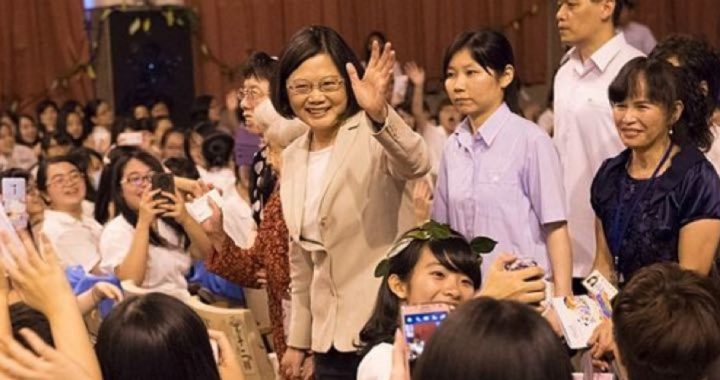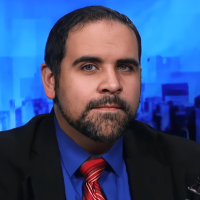
On Saturday, November 24, 2018, Taiwan held the equivalent of its midterm elections. The opposition pro-“One China” Kuomintang Party (KMT) defeated the ruling pro-Taiwanese independence Democratic Progressive Party (DPP) in races across the island. The results come as a major victory for mainland China’s ruling Communist Party of China (CPC), which prefers the KMT over the DPP. The CPC views the DPP as a threat to the Communist Party’s regime and unification objectives. Communists and the Kuomintang, while not seeing eye to eye on which government would rule following reunification, share a common opposition toward the DPP.
Overall, the KMT scored a major upset, winning 15 of the 22 cities and county municipalities throughout Taiwan. In the southern port city of Kaohsiung, DPP mayoral candidate Chen Chi-mai lost to KMT candidate Han Kuo-yu, who will become the city’s first KMT mayor since Wu Den-yih in 1998. Kaohsiung was considered a major stronghold for the DPP and the home of the Taiwanese independence movement. The KMT also won in Taichung, Taiwan’s second largest city, and it defeated the DPP in more than half of the 13 cities and counties that the DPP won back in 2014. However, the election was not a total defeat. The DPP retained control over the city of Tainan and the special municipality of Taoyuan, both of which are regarded as party strongholds in the south and north respectively.
Speaking about the election results, Yao Chia-wen, a senior advisor to Taiwanese President Tsai Ing-wen, told Reuters, “This is a tragic defeat for the DPP.” Commenting on the results, Tsai told reporters, “We must study and accept the higher expectations of the people.” Nevertheless she vowed to press forward. “Continuing reforms, freedom and democracy, and protecting the country’s sovereignty are the mission that the DPP won’t abandon.”
As a result of the DPP’s defeat, President Tsai (shown) resigned as DPP chairwoman but will continue to lead the country until the general election in 2020, at which time she may or may not choose to seek reelection as the DPP’s presidential nominee.
Tsai and the DPP are strong proponents of Taiwanese independence, a position that is unpopular with U.S. globalists. On December 2, 2016, President-elect Donald Trump accepted and took a congratulatory phone call from President Tsai, which marked the first time that a U.S. president or president-elect had publicly spoken to a Taiwanese leader since 1979, when President Jimmy Carter broke off formal U.S. relations with Taiwan in favor of diplomatic relations with Communist China.
News outlets such as CNN that comprise the Deep State’s globalist media, which not surprisingly are supportive of the Chinese communist regime, threw tantrums over Trump’s phone conversation with the Taiwanese president, accusing him of breaking protocol and risking a possible confrontation with China.
Globalists view China as a key partner in a burgeoning new world order, so they refuse to acknowledge Taiwan’s sovereignty, claiming it is “a part of [Communist] China.” The very fact that globalists and their media lackeys are willing to essentially let China yank away personal and economic freedoms from Taiwan’s 23 million residents by completely disregarding the country’s national sovereignty is a disturbing reminder that globalists do not care about the freedom and happiness of the world’s people.
Despite the insistence by globalists that Taiwan must bow to China, many Taiwanese remain steadfast in retaining their country’s independence as a sovereign nation with its own unique heritage and culture, and they vote for the DPP, not the KMT.
In fact, the CPC refuses to have any official dialogue with Taiwan as long as Tsai and the DPP are in power. Should the KMT win the presidency in 2020, Communist China and Taiwan would likely develop closer ties and move toward reunification — reunification under communist terms, though the KMT would like reunification under its own terms.
Students of history or those superficially familiar with Chinese history may recall that the KMT was originally the party of China’s anti-communist Nationalist leader Chiang Kai-shek, who fled to the island of Formosa (Taiwan) and ruled it as the Republic of China (ROC) — the official name of mainland China prior to the establishment of the current communist People’s Republic of China (PRC).
During Chiang’s reign in Taiwan he hoped to one day reunify the island with the mainland, under the Republic of China. During the Chiang-era, the KMT sought to achieve this goal at a future date by military means. However, following the death of Chiang in 1975 and as the military forces of mainland Communist Chinese became more modernized and technologically advanced, the success of a military solution became less likely. Instead, subsequent KMT leaders adopted a more temperate position that was in turn more favorable to the CPC — unification by political means. As a result, the CPC and KMT developed warmer ties, with the CPC preferring the KMT over the DPP in Taiwanese elections.
From these warmer relations came the modern “One China” policy, in which both governments (the mainland PRC and Taiwan-based ROC) agree that there only exists one China but leaves the question as to which of the two is the legitimate government intentionally ambiguous and up to interpretation. Since the 1970s, most of the world, including the U.S. government, officially recognizes the murderous communist regime in Beijing, in accordance with the “One China” policy.
Despite official recognition of the Communist Party regime, the United States maintains a defense treaty with Taiwan and sells arms (including tanks, fighter jets, naval warships, and other military hardware and ordnance) to the island nation — something that the United States does not do with any province in mainland China and would not do unless Taiwan was an independent country.
Without this vital support, nothing would stop Communist China from militarily invading Taiwan and overthrowing the ROC government, likely replacing it with a transitional puppet government under the direct control of the CPC and the People’s Liberation Army. Millions of Taiwanese would lose their freedoms and lives, with many being imprisoned for their religious or political views — especially Taiwanese Christians, practitioners of Falun Gong, Taiwanese independence advocates, members of the DPP, and anyone else who refuses to toe the communist line. It would be a continuation of the United States’ disastrous betrayal of the free Mainland Chinese to the murderous Chinese communists, extended to the free Taiwanese people — many of whom have no direct ties to China and are no more Chinese than, say, the people of Korea or Japan.
In fact, Taiwan was not a part of the Republic of China until 1945, when the defeated Empire of Japan was forced to surrender possesion of the island to Nationalist Chinese forces. Prior to that, Taiwan had been under Japanese occupation since 1895 when Japan defeated the Qing Dynasty-ruled China in the first Sino-Japanese War. As a result, the Qing Dynasty had to cede control of Taiwan to Japan under the Treaty of Shimonoseki. At that time, the Taiwanese tried to established their own free Republic of Formosa in 1895, but it was short-lived. The Imperial Japanese military quickly and violently suppressed the Republic of Formosa government, establishing a puppet government.
Whether under Chinese or Japanese rule, Taiwan has managed to maintain its own unique culture, history, and languages. Among its languages is Taiwanese Hokkien or Taiwanese Min Nan, which is spoken in over 70 percent of households and is distinct from the traditional Chinese Mandarin taught in schools and recognized as the official language by the ROC government. Because of these historical and cultural factors, most people in Taiwan identify as Taiwanese rather than Chinese, in a movement called “Say No to China, Say Yes to Taiwan.”
Taiwan cannot be free as long as it remains tethered to the communist-controlled mainland. It must be independent and sovereign and regarded as such by all those who value freedom and sovereignty around the world.




